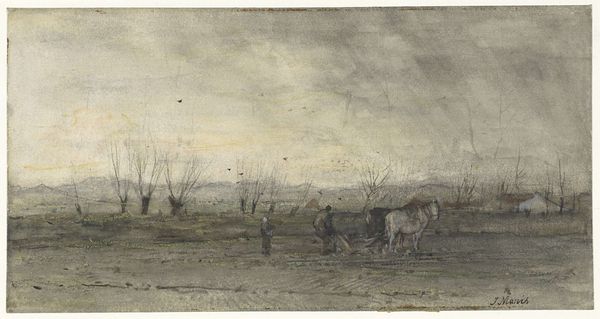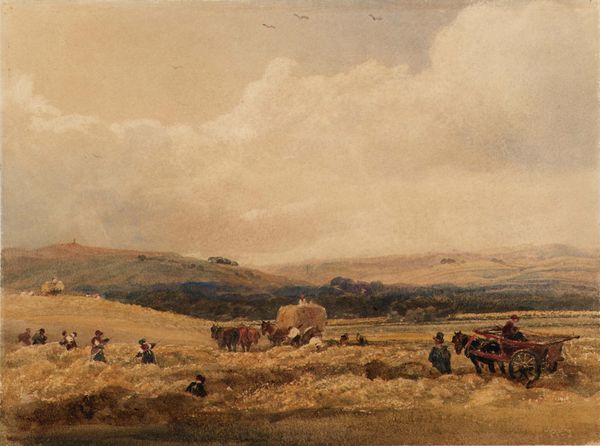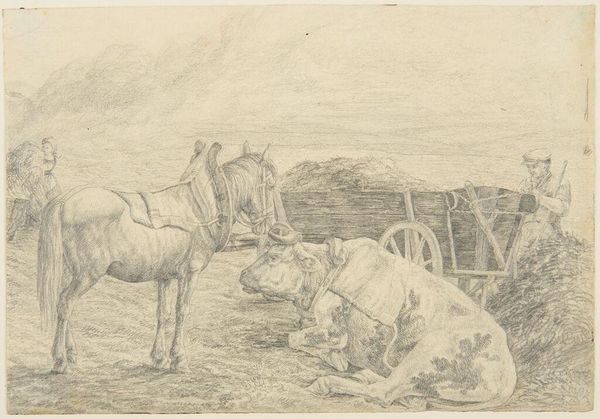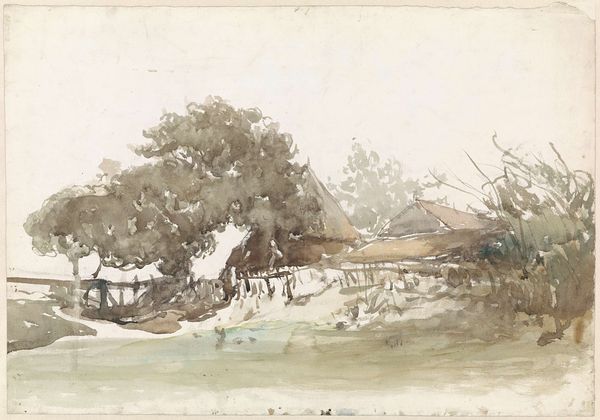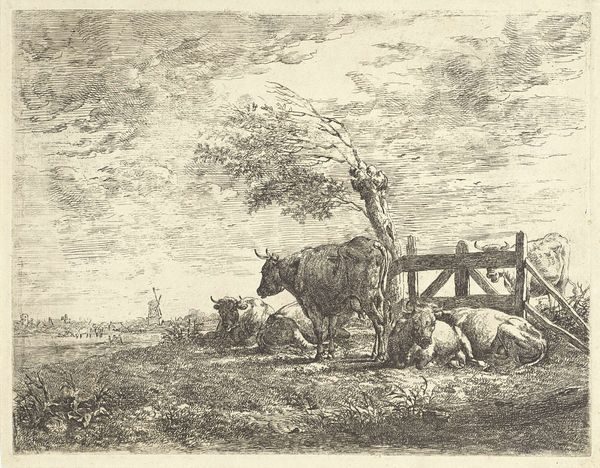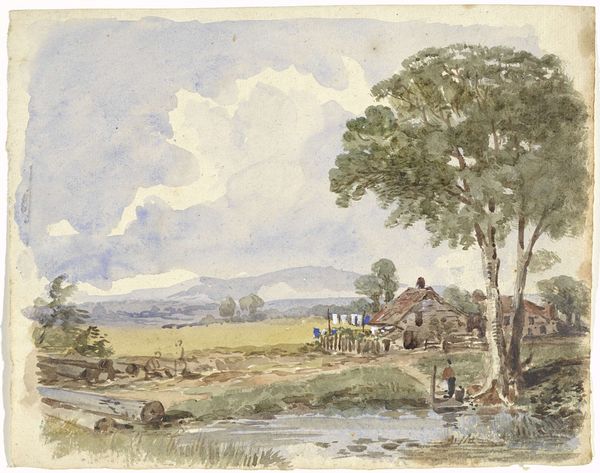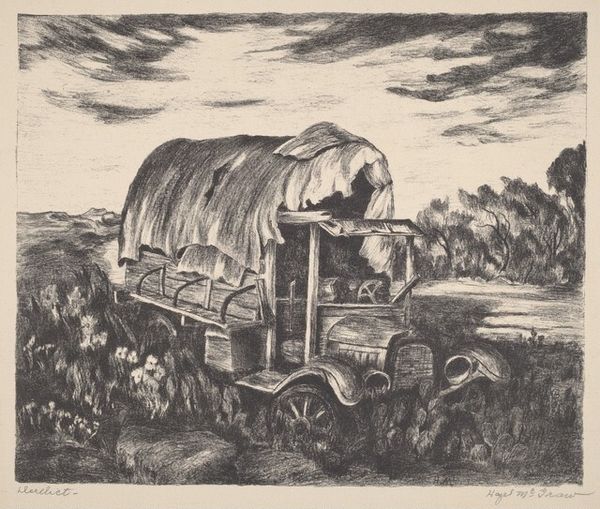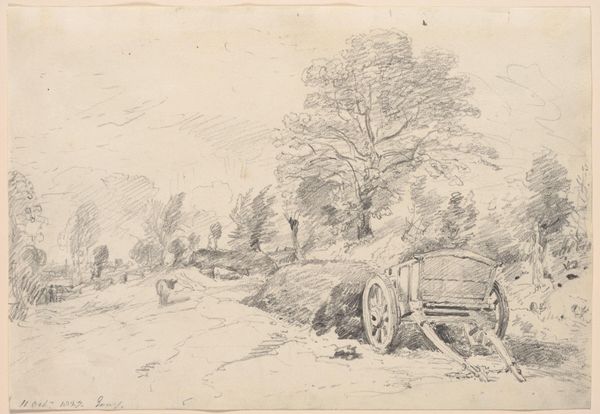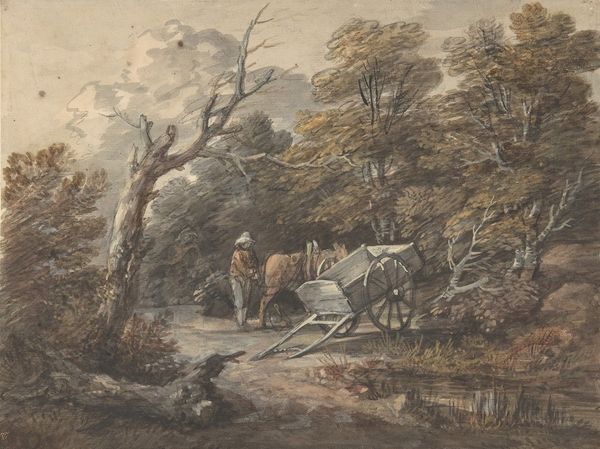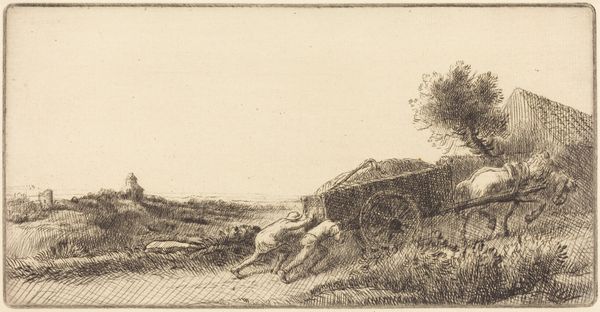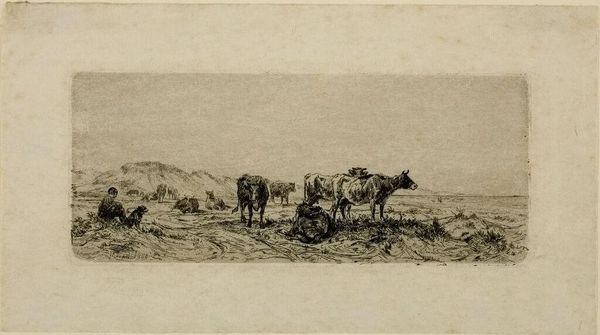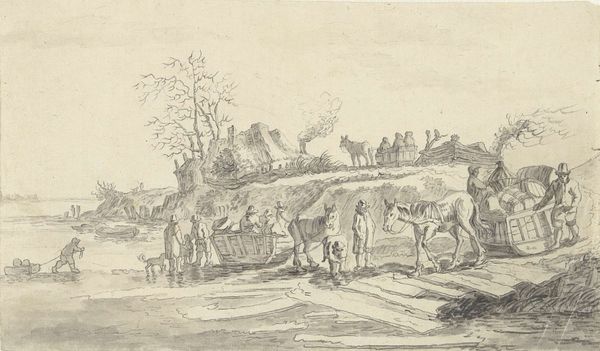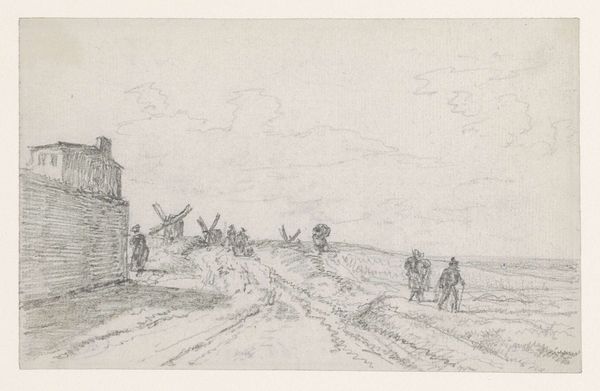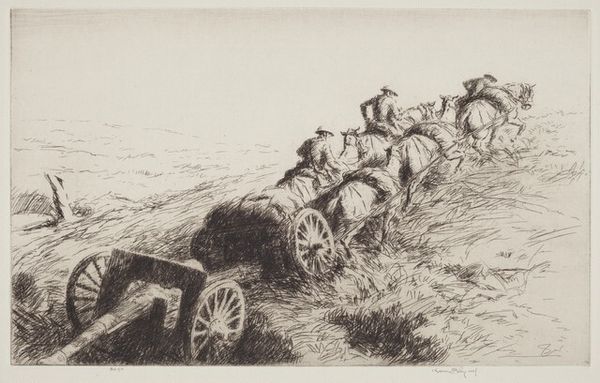
Dimensions: overall (approximate): 23.2 x 38 cm (9 1/8 x 14 15/16 in.)
Copyright: National Gallery of Art: CC0 1.0
Curator: James McBey’s "Kingsgate," a watercolor and ink drawing from 1919, presents a tranquil, rural scene. I find the subdued palette really contributes to the somber mood. Editor: Yes, there's a melancholy to it. The almost monochromatic colors suggest a world worn down, the toll of agricultural labor rendered visible in shades of brown and grey. I can almost feel the weight of the post-war landscape. Curator: I think the stark tree adds to that. Notice how it divides the composition vertically, drawing the eye up to the sky while emphasizing the horizontal stretch of the land. It is a recurring symbol in landscape art—a point of mediation between earth and heaven, decay and persistence. Editor: I’d say the horse embodies that tension more concretely. Animals often represent subjugation within systems of power, so this domesticated beast here, bound to a cart laden with goods, speaks of the rural class under pressure to provide, to work through scarcity in the interwar period. Curator: But is there not also dignity in labor? The way McBey depicts the workers on the cart, huddled together but stoic, suggests a resilience. We tend to underestimate the value of these visual records and their reflection of traditional ways of life—that sense of place and continuity, of inherent value even amidst hardship. Editor: Certainly there's a value to capturing it—even the plein-air technique suggests the immediacy and authenticity of lived experience. But these portrayals of labor often romanticize a very specific kind of hardship while erasing the more brutal aspects of their socio-economic realities. We risk nostalgia. Curator: Isn’t all memory a kind of negotiation between experience and idealization? Symbols resonate precisely because they simplify and condense complex ideas and feelings. Perhaps that’s why this piece is so captivating – a reflection of shared past that we are still struggling to fully understand. Editor: Indeed. I suppose looking closely is also an act of grappling with these histories. What McBey is attempting to immortalize may also point toward everything left unseen, unspoken, or ignored. Curator: It’s a poignant glimpse of a bygone world, reminding us how landscapes also mirror interior spaces. Editor: Exactly—the landscape here echoes in the body of its laborers as well.
Comments
No comments
Be the first to comment and join the conversation on the ultimate creative platform.
